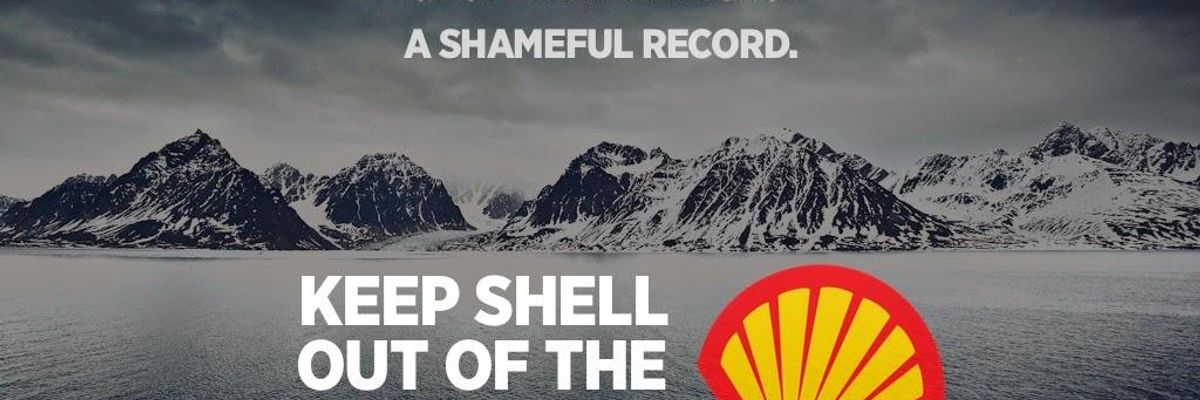There are some things that are simply irreconcilable. And as hard as Big Oil and politicians try, they never will be.
Take for instance climate action and arctic oil. Secretary Jewell at the Department of the Interior is in the final phases of considering Shell's proposal to take another shot at their mishap-driven hunt for Arctic oil.
The irreconcilable problem? We can't seriously address climate change and continue to explore and expand fossil fuel reserves. It is the conundrum of unburnable carbon. Well over two thirds of the oil, coal, and gas we already have access to can't be burned in a climate safe world, so looking for more can be summed up as a hunt for fool's gold.
Another example of an irreconcilable problem is one we explore in a new briefing note released today along with Greenpeace UK and Platform and it tackles Shell's claim that Arctic drilling can be safe and that they could handle a spill.
But safe Arctic drilling is an oxymoron.
Arctic oil spills - by all practical measures - are impossible to clean up. Oil spills are a nightmare to clean up on land, they are impossible to clean up in the ocean, and they are in a category of their own in an Arctic Ocean environment. The bottom line is that no one could be prepared for and contain a spill in that environment.
And it is not an unlikely scenario: the government's own analysis concludes that there is a 75% chance of a major spill if Shell is allowed to drill for and produce oil in the U.S. offshore Arctic.
But Shell insists they are ready, and they make some questionable assumptions to back up their claim. The company suggests it could recover 95% of the oil before it reached a coastline. Compare this to the Deepwater Horizon spill where 8.3% of oil was recovered (using the same techniques), or the Exxon Valdez where 3% of oil was recovered. Also keep in mind that the Arctic Ocean is a whole other ball game when it comes to unpredictable weather, moving sea ice, and treacherous ocean conditions.
Can anyone really responsibly believe that Shell could do the job an order of magnitude better than it has been done in the past? Even if you want to give them the benefit of the doubt at this point, it is worth noting how well their 2012 safety trials went in the relatively calm waters off Washington State. According to reports obtained through freedom of information legislation, the containment dome (meant to cap an underwater oil spill), "breached like a whale", sunk, and was "crushed like a beer can".
There has been no meaningful testing of the safety and containment equipment in the actual arctic environment.
Shell's spill response plan is also based on questionable assumptions regarding weather (that they will have enough consecutive days of good weather to implement a plan), personnel and infrastructure (that they can get enough people and gear to the site in time to make their plan work), and time of year (they have no detailed plan if the spill happens towards the end of season when sea ice is encroaching).
Shell is also 'budgeting' $1.15bn worth of insurance for major oil spills. The Deepwater Horizon spill has cost BP $40bn and counting.
There is a huge gap between Shell's spill response plan and the guaranteed safety of the Arctic. But ultimately it is a gap that is impossible to bridge. There is no such thing as safe Arctic drilling, both for the environment and the climate.
We need a climate plan that works, i.e. actually starts making sure carbon is left in the ground. And we need environmental regulators that recognize that some risks are just impossible to mitigate and simply not worth it - the Arctic Ocean is one of them.
The administration and Secretary Jewell still have time to make the right decision and say no to Shell's reckless arctic plans.
Check out our new briefing note (along with our friends at Platform and Greenpeace UK) on the gaps in Shell's spill response plan here.
Join us in calling on Secretary Jewell and the President to reject Shell's high risk Arctic plan.

